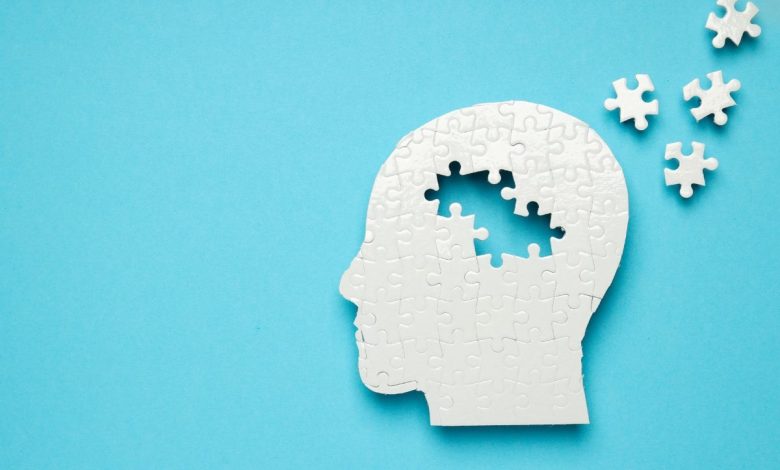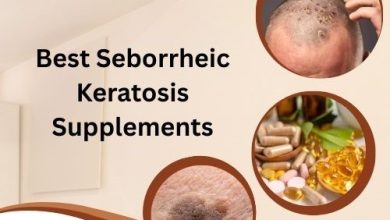The Benefits of Herbal Supplements for Managing Dementia and Alzheimer’s Symptoms

30 seconds summary
- Herbal supplements, such as ginkgo biloba, turmeric, and bacopa monnieri, may offer benefits in managing dementia and Alzheimer’s symptoms by improving memory, enhancing cognitive function, and reducing inflammation.
- These herbs are believed to support brain health through antioxidant properties, blood circulation improvement, and neuroprotection. While promising, it’s important to use them alongside conventional treatments, as they may not replace medical interventions.
- Always consult a healthcare provider before starting any supplement regimen.
Dementia, particularly Alzheimer’s disease, is a growing global health concern, affecting millions of individuals and their families. While conventional treatments primarily focus on symptom management, there is increasing interest in complementary approaches, including the use of herbal supplements, to support cognitive health and potentially slow disease progression. Herbal supplements like ginkgo biloba, turmeric, and bacopa monnieri may offer benefits such as improving memory, enhancing cognitive function, and reducing inflammation. These supplements can be a helpful addition to dementia care services, offering neuroprotection and supporting overall brain health. However, they should be used alongside traditional treatments, and it’s crucial to consult with healthcare providers before starting any new supplement regimen.
Understanding Dementia and Alzheimer’s Disease
Dementia is an umbrella term encompassing various cognitive impairments, with Alzheimer’s disease being the most prevalent form. Characterized by memory loss, confusion, and changes in behavior, Alzheimer’s disease results from complex interactions of genetic, environmental, and lifestyle factors. Current pharmacological treatments offer limited efficacy, highlighting the need for alternative or adjunctive therapeutic strategies.
The Role of Herbal Supplements in Cognitive Health
Herbal supplements have been utilized for centuries in traditional medicine systems worldwide. Many herbs contain bioactive compounds with antioxidant, anti-inflammatory, and neuroprotective properties, which may contribute to brain health. Emerging scientific research supports the potential benefits of certain herbs in managing symptoms associated with dementia and Alzheimer’s disease.
Prominent Herbal Supplements and Their Potential Benefits
1. Ginkgo Biloba
Ginkgo biloba is one of the most studied herbs concerning cognitive function. It is believed to enhance memory and cognitive speed by improving blood circulation to the brain and exhibiting antioxidant effects. Some clinical studies suggest that ginkgo biloba may help alleviate symptoms of Alzheimer’s disease, such as memory loss and confusion. However, results are mixed, and more rigorous trials are needed to confirm its efficacy.
2. Bacopa Monnieri (Brahmi)
An herb used in Ayurvedic medicine, Bacopa monnieri is thought to enhance memory and cognitive function. Some studies indicate that it may improve cognitive performance and reduce anxiety, which can be beneficial for individuals with dementia. The active compounds in Bacopa monnieri are believed to support nerve growth and protect against oxidative stress.
3. Turmeric (Curcuma longa)
Turmeric contains curcumin, a compound with potent anti-inflammatory and antioxidant properties. Research suggests that curcumin may reduce amyloid plaque accumulation in the brain, a hallmark of Alzheimer’s disease. While promising, curcumin’s bioavailability is low, and its effectiveness in humans requires further investigation.
4. Sage (Salvia officinalis)
Sage has been traditionally used to enhance memory and cognitive function. Some studies have shown that sage extract may improve cognitive performance in individuals with mild to moderate Alzheimer’s disease. The herb’s active compounds are believed to inhibit the breakdown of acetylcholine, a neurotransmitter involved in memory and learning.
5. Rosemary (Rosmarinus officinalis)
Rosemary is rich in antioxidants and has been associated with improved memory and concentration. Aromatic compounds in rosemary may stimulate the brain and enhance cognitive function. While more research is needed, incorporating rosemary into the diet may offer cognitive benefits.
6. Ashwagandha (Withania somnifera)
Ashwagandha is an adaptogenic herb used in Ayurvedic medicine to reduce stress and improve overall health. Preliminary studies suggest that ashwagandha may have neuroprotective effects and could support cognitive function in individuals with neurodegenerative diseases.
7. Lion’s Mane Mushroom (Hericium erinaceus)
Lion’s Mane mushroom is believed to stimulate nerve growth factor (NGF) production, which supports neuron health and regeneration. Some studies suggest that Lion’s Mane may improve cognitive function and alleviate mild cognitive impairment. However, more extensive human trials are necessary to confirm these effects.
Mechanisms of Action
The potential cognitive benefits of herbal supplements may arise from various mechanisms:
- Antioxidant Properties: Many herbs contain compounds that neutralize free radicals, reducing oxidative stress, which is implicated in neuronal damage and cognitive decline.
- Anti-inflammatory Effects: Chronic inflammation in the brain can contribute to neurodegenerative diseases. Herbal compounds may modulate inflammatory pathways, offering neuroprotection.
- Neuroprotection and Neurogenesis: Certain herbs may promote the growth and repair of neurons, enhancing brain plasticity and function.
- Cholinergic Activity Modulation: Some herbs may influence acetylcholine levels, a neurotransmitter crucial for memory and learning processes.
Safety and Considerations
While herbal supplements can offer benefits, they are not without risks. Potential side effects include gastrointestinal discomfort, allergic reactions, and interactions with prescription medications. For instance, ginkgo biloba may increase the risk of bleeding, especially when taken with anticoagulants. It is essential for individuals considering herbal supplements to consult healthcare professionals to ensure safety and appropriateness.
Integrating Herbal Supplements into Dementia Care
Herbal supplements should be viewed as complementary to conventional treatments, not as replacements. A holistic approach to dementia care includes:
- Medical Supervision: Regular consultations with healthcare providers to monitor the progression of the disease and adjust treatments as necessary.
- Cognitive Stimulation: Engaging in activities that challenge the brain, such as puzzles, reading, and memory exercises.
- Physical Activity: Regular exercise to improve overall health and potentially slow cognitive decline.
- Social Engagement: Maintaining social interactions to support emotional well-being and cognitive function.
- Nutrition: A balanced diet rich in antioxidants and essential nutrients to support brain health.
In regions like Rawalpindi, Pakistan, where traditional medicine is prevalent, integrating herbal supplements into dementia care requires cultural sensitivity and collaboration with local healthcare providers. Herbal remedies should be sourced from reputable suppliers to ensure quality and safety.
Conclusion
Herbal supplements offer a promising avenue for supporting cognitive health in individuals with dementia and Alzheimer’s disease. While research is ongoing, certain herbs have demonstrated potential benefits in enhancing memory, reducing cognitive decline, and improving overall brain health. However, they should be used cautiously and under professional guidance, as part of a comprehensive care plan tailored to the individual’s needs. Continued research and clinical trials are essential to fully understand the efficacy and safety of herbal supplements in dementia management.




